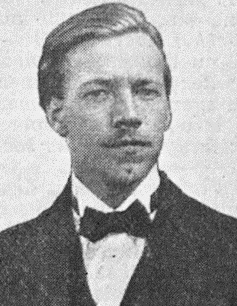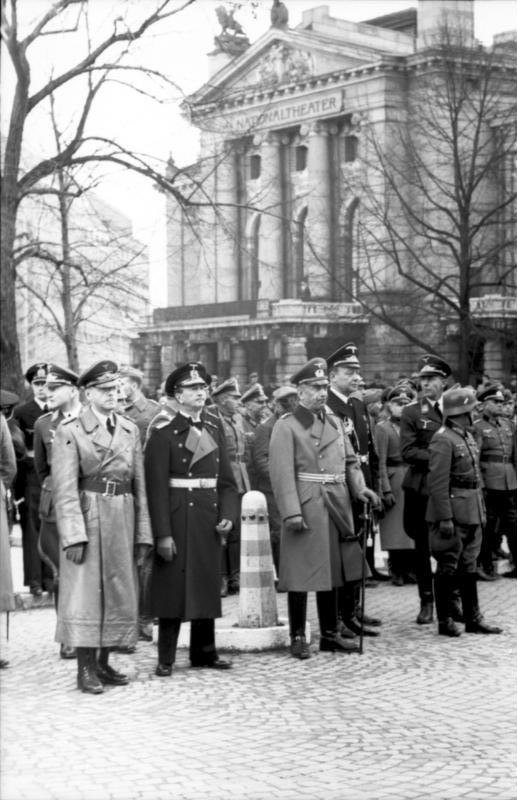|
Sigurd Simensen
Sigurd Simensen (19 February 1888 – 27 April 1969) was a Norwegian newspaper editor and politician for the Labour and Communist parties. He was born in Vestfossen. He started his career as an iron and metalworker, working at Thunes Mekaniske Verksted. He first joined the Union of Iron and Metalworkers in 1907, and was politically organized from 1908. He became a leading member of Norges Socialdemokratiske Ungdomsforbund, and was elected to their central board in 1916. He became subeditor of their newspaper ''Klassekampen'' in 1917. In 1918 he was elected to the Labour Party central board, and was hired as travelling secretary for Northern Norway. He also chaired the national association of ''worker's councils'' which sprang up in the same year, post-Russian Revolution The Russian Revolution was a period of Political revolution (Trotskyism), political and social revolution that took place in the former Russian Empire which began during the First World War. This period sa ... [...More Info...] [...Related Items...] OR: [Wikipedia] [Google] [Baidu] |
Harstad
( se, Hárstták) is the second-most populated municipality in Troms og Finnmark county, Norway. It is mostly located on the large island of Hinnøya. The municipal center is the town of Harstad, the most populous town in Central Hålogaland, and the third-largest in all of Northern Norway. The town was incorporated in 1904. Villages in the municipality include Elgsnes, Fauskevåg, Gausvik, Grøtavær, Kasfjord, Lundenes, Nergården and Sørvika. The municipality is the 226th largest by area out of the 356 municipalities in Norway. Harstad is the 49th most populous municipality in Norway with a population of 24,804. The municipality's population density is and its population has increased by 2.9% over the previous 10-year period. Geography The municipality is located on many islands in southern Troms og Finnmark county. Most of the municipality is located on the large island of Hinnøya, which is Norway's largest coastal island (three islands in the Svalbard archipelago a ... [...More Info...] [...Related Items...] OR: [Wikipedia] [Google] [Baidu] |
Mayors Of Harstad
In many countries, a mayor is the highest-ranking official in a municipal government such as that of a city or a town. Worldwide, there is a wide variance in local laws and customs regarding the powers and responsibilities of a mayor as well as the means by which a mayor is elected or otherwise mandated. Depending on the system chosen, a mayor may be the chief executive officer of the municipal government, may simply chair a multi-member governing body with little or no independent power, or may play a solely ceremonial role. A mayor's duties and responsibilities may be to appoint and oversee municipal managers and employees, provide basic governmental services to constituents, and execute the laws and ordinances passed by a municipal governing body (or mandated by a state, territorial or national governing body). Options for selection of a mayor include direct election by the public, or selection by an elected governing council or board. The term ''mayor'' shares a linguistic ... [...More Info...] [...Related Items...] OR: [Wikipedia] [Google] [Baidu] |
Communist Party Of Norway Politicians
Communism (from Latin la, communis, lit=common, universal, label=none) is a far-left sociopolitical, philosophical, and economic ideology and current within the socialist movement whose goal is the establishment of a communist society, a socioeconomic order centered around common ownership of the means of production, distribution, and exchange which allocates products to everyone in the society.: "One widespread distinction was that socialism socialised production only while communism socialised production and consumption." Communist society also involves the absence of private property, social classes, money, and the state. Communists often seek a voluntary state of self-governance, but disagree on the means to this end. This reflects a distinction between a more libertarian approach of communization, revolutionary spontaneity, and workers' self-management, and a more vanguardist or communist party-driven approach through the development of a constitutional socialist sta ... [...More Info...] [...Related Items...] OR: [Wikipedia] [Google] [Baidu] |
Labour Party (Norway) Politicians
Labour Party or Labor Party is a name used by many political parties. Many of these parties have links to the trade union movement or organised labour in general. Labour parties can exist across the political spectrum, but most are centre-left or left-wing parties. The largest Labour parties, such as the UK Labour Party, Australian Labor Party, New Zealand Labour Party and Israeli Labor Party, tend to have a social democratic or democratic socialist orientation. Angola *MPLA, known for some years as "Popular Movement for the Liberation of Angola – Labour Party" Antigua and Barbuda * Antigua and Barbuda Labour Party Argentina * Labour Party (Argentina) Armenia * All Armenian Labour Party *United Labour Party (Armenia) Australia *Australian Labor Party ** Australian Labor Party (Australian Capital Territory Branch) **Australian Labor Party (New South Wales Branch) ** Australian Labor Party (Queensland Branch) ** Australian Labor Party (South Australian Branch) ** Austra ... [...More Info...] [...Related Items...] OR: [Wikipedia] [Google] [Baidu] |
Norwegian Newspaper Editors
Norwegian, Norwayan, or Norsk may refer to: *Something of, from, or related to Norway, a country in northwestern Europe *Norwegians, both a nation and an ethnic group native to Norway * Demographics of Norway *The Norwegian language, including the two official written forms: **Bokmål, literally "book language", used by 85–90% of the population of Norway **Nynorsk, literally "New Norwegian", used by 10–15% of the population of Norway *The Norwegian Sea Norwegian or may also refer to: Norwegian * Norwegian Air Shuttle, an airline, trading as Norwegian **Norwegian Long Haul, a defunct subsidiary of Norwegian Air Shuttle, flying long-haul flights *Norwegian Air Lines, a former airline, merged with Scandinavian Airlines in 1951 *Norwegian coupling, used for narrow-gauge railways *Norwegian Cruise Line, a cruise line *Norwegian Elkhound, a canine breed. *Norwegian Forest cat, a domestic feline breed *Norwegian Red, a breed of dairy cattle *Norwegian Township, Schuylkill County ... [...More Info...] [...Related Items...] OR: [Wikipedia] [Google] [Baidu] |
1969 Deaths
This year is notable for Apollo 11's first landing on the moon. Events January * January 4 – The Government of Spain hands over Ifni to Morocco. * January 5 ** Ariana Afghan Airlines Flight 701 crashes into a house on its approach to London's Gatwick Airport, killing 50 of the 62 people on board and two of the home's occupants. * January 14 – An explosion aboard the aircraft carrier USS ''Enterprise'' near Hawaii kills 27 and injures 314. * January 19 – End of the siege of the University of Tokyo, marking the beginning of the end for the 1968–69 Japanese university protests. * January 20 – Richard Nixon is sworn in as the 37th President of the United States. * January 22 – An assassination attempt is carried out on Soviet leader Leonid Brezhnev by deserter Viktor Ilyin. One person is killed, several are injured. Brezhnev escaped unharmed. * January 27 ** Fourteen men, 9 of them Jews, are executed in Baghdad for spying for Isr ... [...More Info...] [...Related Items...] OR: [Wikipedia] [Google] [Baidu] |
1888 Births
In Germany, 1888 is known as the Year of the Three Emperors. Currently, it is the year that, when written in Roman numerals, has the most digits (13). The next year that also has 13 digits is the year 2388. The record will be surpassed as late as 2888, which has 14 digits. Events January–March * January 3 – The 91-centimeter telescope at Lick Observatory in California is first used. * January 12 – The Schoolhouse Blizzard hits Dakota Territory, the states of Montana, Minnesota, Nebraska, Kansas, and Texas, leaving 235 dead, many of them children on their way home from school. * January 13 – The National Geographic Society is founded in Washington, D.C. * January 21 – The Amateur Athletic Union is founded by William Buckingham Curtis in the United States. * January 26 – The Lawn Tennis Association is founded in England. * February 6 – Gillis Bildt becomes Prime Minister of Sweden (1888–1889). * February 27 &nda ... [...More Info...] [...Related Items...] OR: [Wikipedia] [Google] [Baidu] |
Forced Labour
Forced labour, or unfree labour, is any work relation, especially in modern or early modern history, in which people are employed against their will with the threat of destitution, detention, violence including death, or other forms of extreme hardship to either themselves or members of their families. Unfree labour includes all forms of slavery, penal labour and the corresponding institutions, such as debt slavery, serfdom, corvée and labour camps. Definition Many forms of unfree labour are also covered by the term forced labour, which is defined by the International Labour Organization (ILO) as all involuntary work or service exacted under the menace of a penalty. However, under the ILO Forced Labour Convention of 1930, the term forced or compulsory labour does not include: *"any work or service exacted in virtue of compulsory military service laws for work of a purely military character;" *"any work or service which forms part of the normal civic obligation ... [...More Info...] [...Related Items...] OR: [Wikipedia] [Google] [Baidu] |
German Occupation Of Norway
The occupation of Norway by Nazi Germany during the Second World War began on 9 April 1940 after Operation Weserübung. Conventional armed resistance to the German invasion ended on 10 June 1940, and Nazi Germany controlled Norway until the capitulation of German forces in Europe on 8 May 1945. Throughout this period, a pro-German government named Den nasjonale regjering (English: the National Government) ruled Norway, while the Norwegian king Haakon VII and the prewar government escaped to London, where they formed a government in exile. Civil rule was effectively assumed by the '' Reichskommissariat Norwegen'' (Reich Commissariat of Norway), which acted in collaboration with the pro-German puppet government. This period of military occupation is, in Norway, referred to as the "war years", "occupation period" or simply "the war". Background Having maintained its neutrality during the First World War (1914–1918), Norwegian foreign and military policy since 1933 was large ... [...More Info...] [...Related Items...] OR: [Wikipedia] [Google] [Baidu] |
1933 Norwegian Parliamentary Election ...
Parliamentary elections were held in Norway on 16 October 1933.Dieter Nohlen & Philip Stöver (2010) ''Elections in Europe: A data handbook'', p1438 The result was a victory for the Labour Party, which won 69 of the 150 seats in the Storting. Results Seat distribution Notes References {{Norwegian elections General elections in Norway 1930s elections in Norway Norway Parliamentary Norway Norway, officially the Kingdom of Norway, is a Nordic country in Northern Europe, the mainland territory of which comprises the western and northernmost portion of the Scandinavian Peninsula. The remote Arctic island of Jan Mayen and t ... [...More Info...] [...Related Items...] OR: [Wikipedia] [Google] [Baidu] |
1927 Norwegian Parliamentary Election ...
Parliamentary elections were held in Norway on 17 October 1927.Dieter Nohlen & Philip Stöver (2010) ''Elections in Europe: A data handbook'', p1438 The Labour Party emergeed as the largest party, winning 59 of the 150 seats in the Storting. However, the subsequent government was headed by Ivar Lykke of the Conservative Party. Results Seat distribution See also *1927 Conservative Party national convention Notes References {{Norwegian elections General elections in Norway 1920s elections in Norway Norway Parliamentary Norway Norway, officially the Kingdom of Norway, is a Nordic country in Northern Europe, the mainland territory of which comprises the western and northernmost portion of the Scandinavian Peninsula. The remote Arctic island of Jan Mayen and t ... [...More Info...] [...Related Items...] OR: [Wikipedia] [Google] [Baidu] |


.jpg)


